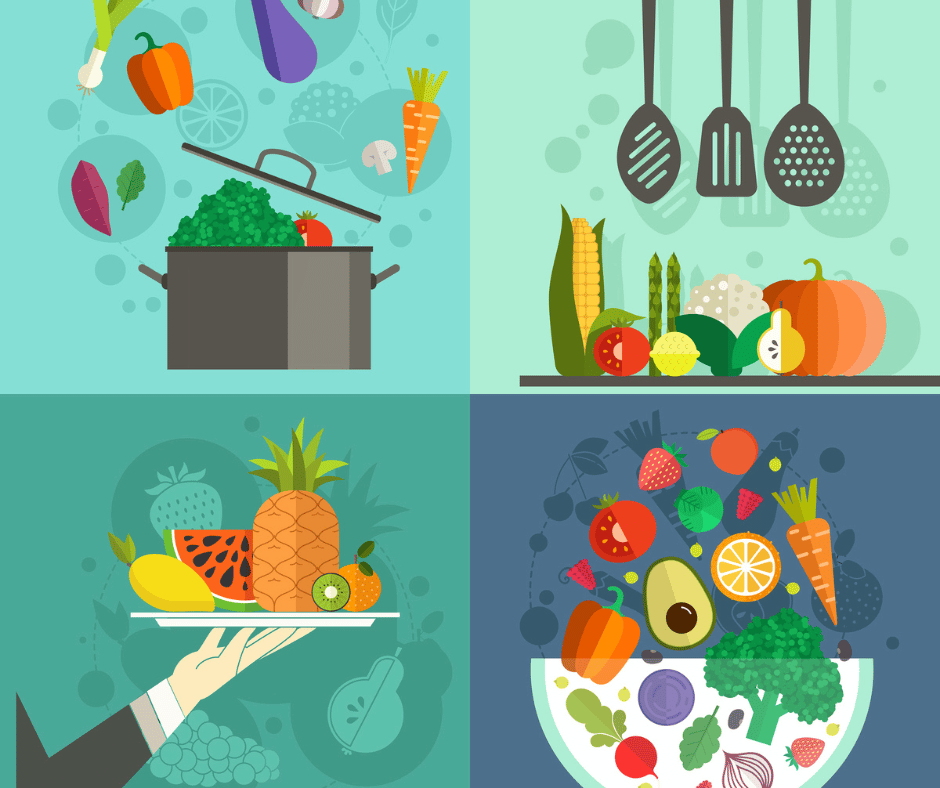When it comes to managing ADHD in children, the focus often leans heavily on behavioral therapies and medication. However, a frequently overlooked aspect of ADHD management is nutrition. What we feed our children has a significant impact on their physical and mental well-being, and this is particularly true for those with ADHD. By making informed choices about diet and supplements, parents can support their child’s brain health and help manage ADHD symptoms more effectively.
Subscribe and get the book “Parenting ADHD Kids: 100+ Techniques & 10 Toolkits” for free!
The Impact of Diet on ADHD
The food that fuels your child’s body also fuels their brain. For children with ADHD, certain foods can either help alleviate symptoms or make them worse. A well-balanced diet rich in nutrients can make a noticeable difference in behavior, focus, and overall well-being.
1. Balanced Nutrition: The Foundation of Well-Being
A balanced diet is vital for all children, but it’s essential for those with ADHD. This means including various fruits, vegetables, whole grains, lean proteins, and healthy fats in their meals. These foods provide the vitamins, minerals, and antioxidants necessary for optimal brain function.
2. The Role of Protein
Protein is crucial for brain health, as it helps produce neurotransmitters that regulate mood and behavior. Incorporating high-quality protein sources such as lean meats, eggs, beans, nuts, and dairy products can support better concentration and reduce hyperactivity.
3. Omega-3 Fatty Acids: Brain Boosters
Omega-3 fatty acids in fish like salmon, flaxseeds, and walnuts are essential for brain development and function. Studies have shown that children with ADHD may benefit from higher levels of omega-3s in their diet, as these fats can improve focus, reduce impulsivity, and enhance overall cognitive function.
4. The Importance of Whole Grains
Whole grains such as oats, brown rice, and whole wheat bread provide a steady release of glucose, essential for maintaining energy levels and concentration throughout the day. Conversely, refined sugars can cause spikes in blood sugar followed by crashes, leading to irritability and difficulty focusing.
5. Fresh Fruits and Vegetables
Fruits and vegetables are packed with vitamins, minerals, and antioxidants vital for brain health. Dark leafy greens, berries, and citrus fruits are particularly beneficial, as they contain nutrients that support cognitive function and reduce inflammation, which can be a factor in ADHD symptoms.
Supplements: Filling in the Gaps
While a balanced diet should be the cornerstone of your child’s nutritional plan, supplements can help fill in any gaps and provide additional support.
1. Multivitamins
A daily multivitamin can ensure your child gets the essential nutrients they need, especially if they are picky eaters. Look for a high-quality multivitamin that includes vitamins A, C, D, and E and the B vitamins essential for energy production and brain health.
2. Omega-3 Supplements
If your child isn’t a fan of fish, omega-3 supplements are a great alternative. Fish oil capsules or algae-based supplements (for those who prefer a plant-based option) can provide the necessary DHA and EPA fatty acids that support brain function and reduce ADHD symptoms.
3. Magnesium
Magnesium is another supplement that can be beneficial for children with ADHD. This mineral helps regulate neurotransmitters and relaxes the nervous system, reducing hyperactivity and improving sleep quality. Foods rich in magnesium include spinach, almonds, and black beans, but a supplement may be necessary if dietary intake is insufficient.
4. Zinc
Zinc is essential for producing neurotransmitters like dopamine, which affects attention and behavior. Some studies suggest that children with ADHD may have lower levels of zinc, and supplementing with this mineral can help improve symptoms. Zinc can be found in foods like meat, dairy, and legumes, but a supplement can ensure adequate intake.
Foods to Avoid
What to avoid is just as important as what to include in your child’s diet. Certain foods can exacerbate ADHD symptoms and should be limited or eliminated.
1. Artificial Additives
Artificial colors, flavors, and preservatives have been linked to increased hyperactivity and behavioral problems in children. Common culprits include processed snacks, sugary cereals, and sodas. Reading labels and choosing whole, natural foods can help reduce your child’s exposure to these additives.
2. Refined Sugars
Sugary foods and drinks can cause spikes in blood sugar levels, leading to mood swings, irritability, and difficulty concentrating. Instead of processed sweets, opt for natural sources of sugar like fruits, which also provide fiber and other nutrients.
3. Caffeine
Caffeine is a stimulant that can interfere with sleep and exacerbate anxiety, both of which can worsen ADHD symptoms. It’s best to avoid caffeinated beverages like soda, coffee, and energy drinks, particularly in the evening.
Crafting a Nutrition Plan That Works
Creating a diet plan for your child with ADHD doesn’t have to be overwhelming. Start by incorporating more whole foods into their meals and gradually reducing processed and sugary items. Pay attention to how different foods affect your child’s behavior and adjust as needed. Consulting with a nutritionist or dietitian specializing in ADHD can provide personalized guidance and support.
Conclusion: A Holistic Approach to ADHD Management
While diet and supplements aren’t a cure for ADHD, they play a crucial role in managing the condition. By providing your child with the proper nutrients, you can help them feel their best and perform better in all areas of life. Remember, every child is different, so what works for one may not work for another. Being patient and adjusting based on your child’s needs is essential.
With the right approach to nutrition, you can empower your child to thrive mentally and physically.
Join us and grab your free copy of “Parenting ADHD Kids: 100+ Techniques & 10 Toolkits”!
